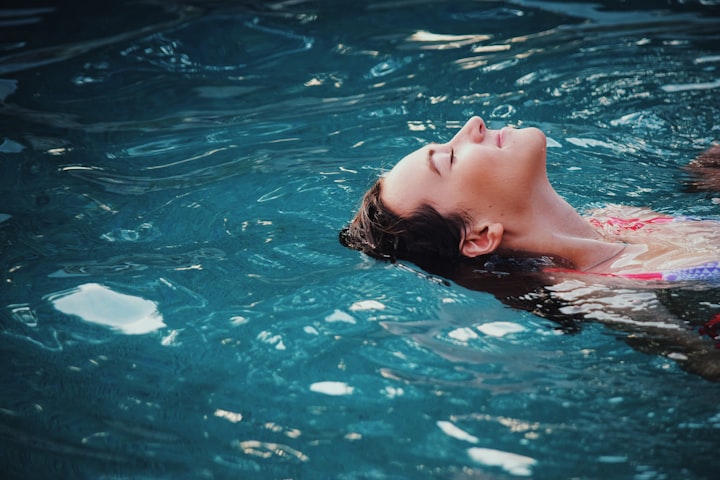The Only Exercise You Need to Keep Your Brain Healthy
No, it's not drawing a map from your memory.

Until the 1960s, scientists thought that the number of neurons connections in the human brain were finite and that these brain cells could not be replaced once damaged.
However, when more evidence showing the creation of neurons, or neurogenesis, in the adult brains of humans and other animals became available, that theory was disproved.
Research already shows that aerobics exercises are great for mental health.
Today, I will share the best activity to incorporate into your daily routine to keep your brain young and healthy. According to Seena Mathew P.h.D, a neurobiologist, swimming is the best exercise for your longevity and brain health.
Swimming is an aerobics exercise that releases endorphins in your brain like the rest of the aerobic exercises. Endorphins help us feel good, which is directly related to reducing anxiety and depression.
Why swimming?
You may be wondering why swimming is the best type of brain exercise. After all, it releases endorphins like the rest of the aerobics exercise. Various studies have linked swimming to boost brain chemicals related to cognition and memory.
Research is still going on, and neurologists don’t know why swimming is better than the rest of the aerobic exercises.
Swimming on a regular basis helped to boost the immune system, mood, and memory. Another research shows that swimming might also help build new neural connections or repair the damaged ones.
You are only one swim away from a good mood.
Swim to boost your brainpower
Many studies suggest that swimming helps boost brain health in the long run. Regular swimming is necessary to get the brain booster. Swimming may help to repair damaged neural paths in older adults. Research conducted on rats while swimming showed the brain was creating different pathways.
Helps to release Neurotransmitter
Swimming also helps to release a chemical called neurotransmitters. One type of neurotransmitter is known as serotonin, which reduces anxiety and depression.
Swimming improves short & long-term memories
First, this experiment was carried out on rats. Rats were taught to swim for 60 minutes five days a week by neurologists. The rats’ memory was then evaluated by swimming them through an arm water maze with six arms, one of which included a hidden platform.
Scientists noticed considerable gains in short and long-term memory after only 7 days of training, based on reducing daily mistakes made by rats.
According to scientists, this helps improve cognitive performance and repair damaged brain pathways. Scientists believe this created a foundation for using swimming to recover memory impairment caused by a neuropsychiatric disorder in humans.
Although the leap from studies in rats to humans is substantial, research in people is producing similar results that suggest a clear cognitive benefit from swimming across all ages. — Seena Mathew, Neurobiologist
Swimming can boost the learning process in kids
According to research, swimming helps children establish new cerebral pathways that help them learn faster. Take the youngsters to the pool to help them learn faster.
Another study looked at how children could memorize vocabulary after swimming, coloring, or participating in a CrossFit-like exercise. After swimming, the youngsters recalled a lot more vocabulary.
These findings imply that swimming for even short periods of time is highly beneficial to young, developing brains. — Mathew Seena
Conclusion
In a nutshell, according to scientists, swimming is the best exercise for your brain. Let’s recap the swimming benefits for your brain.
- Swimming is directly related to boosting your cognitive functions
- Swimming may help you to reduce your anxiety and stress
- Swimming helps to put you in a good mood.
- Swimming can also help to create new neural connections for better memory
- Older people can have excellent mental health by incorporating a swimming routine into their lives
- Many studies show that a tiny dip into the water can boost children’s learning
Disclaimer: The original article was published on another platform.
If you enjoy my stories and want to support me, please consider leaving a tip. Thanks
If you enjoy writing, you can join Vocal as a creator to find your voice and reach out to a broad audience. I also write on Medium and NewsBreak.
About the Creator
Sufyan Maan, M.Eng
I'm an avid hiker, Researcher, Writer/Editor, Engineer, and Lifelong Learner. I write on Medium, Vocal, NewsBreak, Illumination, and Quora. Support my writing+hiking journey. Thanks






Comments
There are no comments for this story
Be the first to respond and start the conversation.